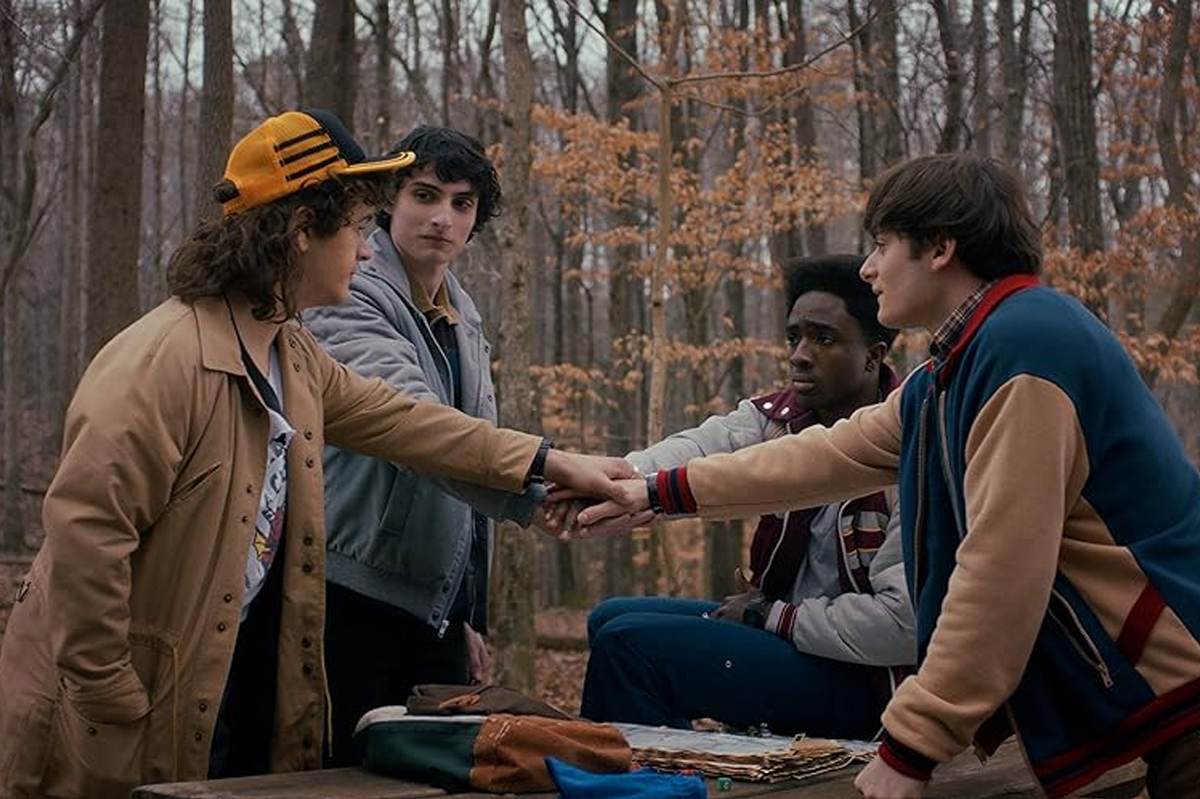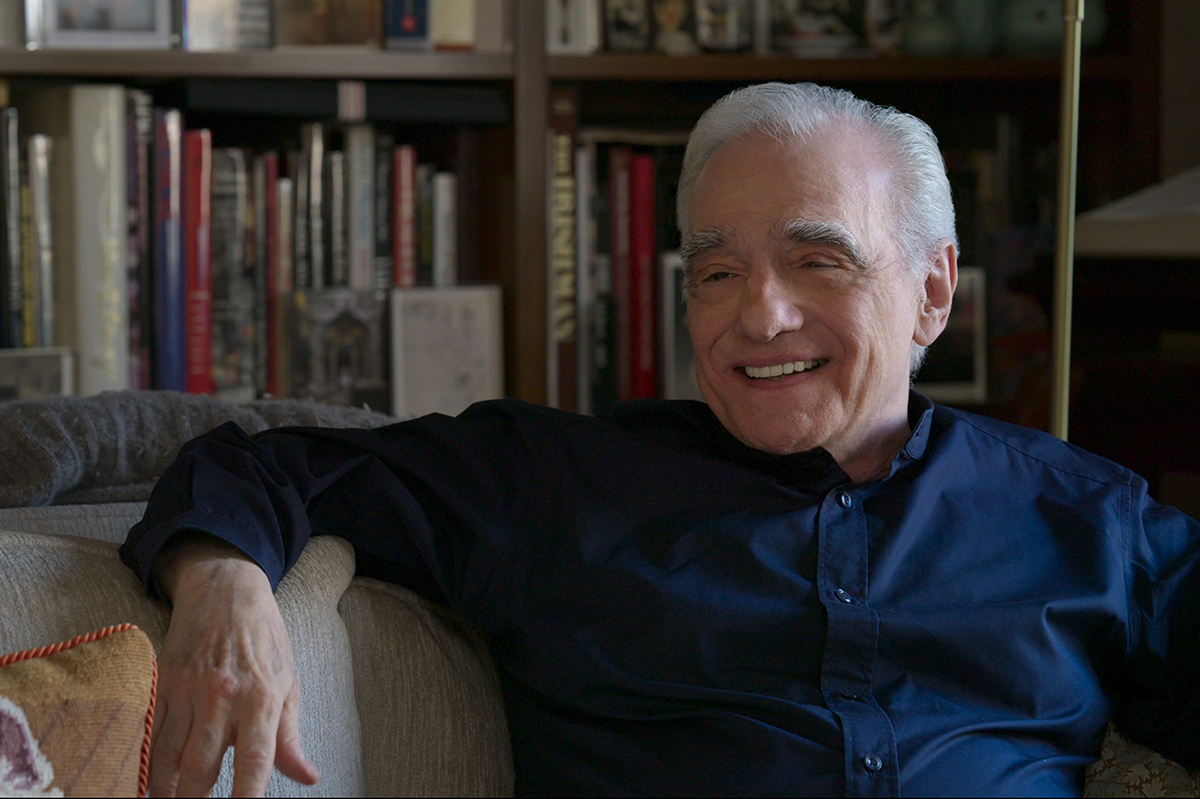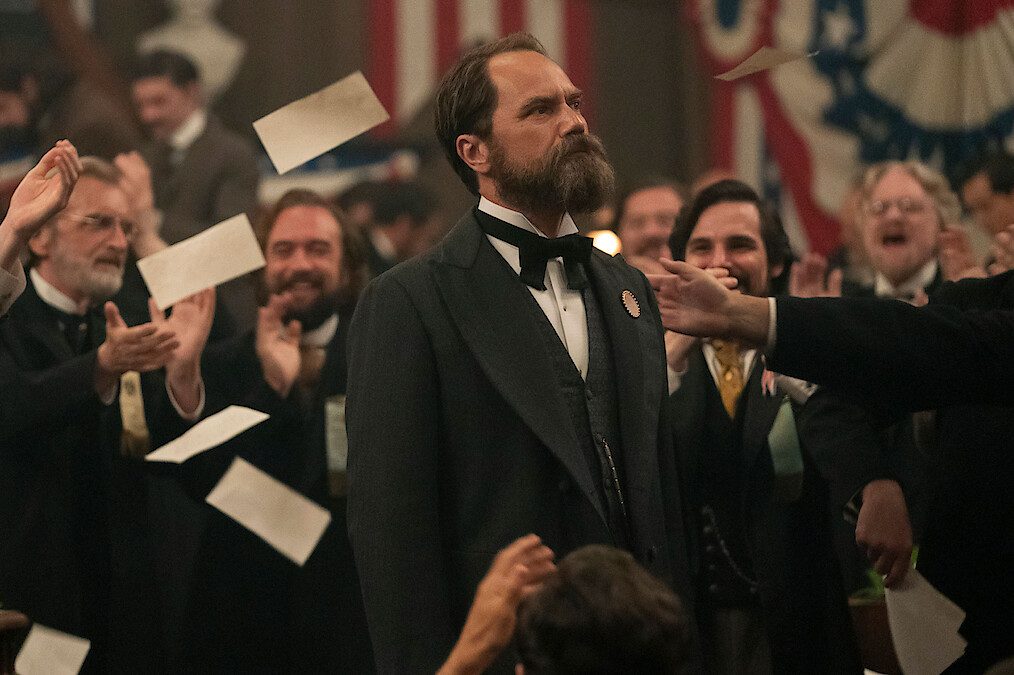Kaos is a new Netflix gods-and-monsters black-comedy blockbuster that will scorch your screen and fry your brain like a thunderbolt from Zeus. It’s sick, cynical, brutal and very, very dark but it’s so well acted, ingeniously plotted, moving, inventive, funny and addictive that I fear resistance may be futile.
Written by Charlie Covell, it’s like Succession relocated to a parallel modern world in which the ancient Greek gods still rule over us, ruthlessly pursuing their peculiar ends with a characteristically Olympian disregard for the pain and misery their shenanigans inflict on us worthless mortals.
These gods are excruciatingly spoilt, selfish and capricious. When Zeus (Jeff Goldblum) loses his favourite watch (a tacky, gold Casio-style number) he takes it out on the young staff at his palace, all of them dressed up like Wimbledon ball boys. Spoiler alert: he lines them up on his roof — perhaps inspired by the apocryphal story about Louis XIV treating peasants like pheasants — slips another cartridge into his shotgun and calls “Pull.”
None of these deities is particularly lovable, save puppyish playboy Dionysus (Nabhaan Rizwan) — that’ll be the half-human side of him coming out. But you cannot help half-admiring the petulance, deviousness and arrogance of their vile machinations. I’m reminded of the episode of Succession in which they play a brutal game called “boar on the floor.” where you hate yourself for almost relishing Logan Roy’s sadism.
You’re probably not meant to root for them. Rather your sympathies (and the plot’s emotional arc) lie with the star-crossed mortals — Orpheus (Killian Scott) and Riddy (Aurora Perrineau) — who must act out a prophecy that, if fulfilled, will destroy Zeus’s malign hegemony and bring about the “Kaos” of the title. This plot is supervised by our confiding narrator Prometheus (Stephen Dillane), when he’s not busy being chained to a cliff and having his liver pecked out by vultures.
As in the ancient myth, Orpheus and Eurydice provide the love story. Riddy is killed in a car crash and the bereft Orpheus (in this version a heartthrob rock star) must journey to the Underworld to retrieve his beloved, and in doing so violate and destroy the divine order. They are helped and hindered on their way by a succession of cameo characters, including Billie Piper (as Cassandra, looking a bit like Grizabella from Cats) and one Suzy Izzard (as one of the Fates), both of whom frankly are a bit rubbish. Most of the performances, though, are first-rate. I particularly like Kiwi actor Clifford Curtis (probably best known for Once Were Warriors) as Zeus’s sleazy playboy brother Poseidon, who hangs out louchely on his superyacht, smoking cigars, torturing impudent crew members and servicing his mistress (and sister — and elder brother’s wife: the gods aren’t big on conventional morality) Hera, a joyously wicked Janet McTeer.
What really makes this series special, though, is the thought and effort that has gone into the world-building. It’s the same quality that makes The Simpsons so great: while the storylines are often brilliant, what raises it to the level of genius is the incidental detail. You notice this in everything from the Greek-myth-branded cereals they sell in the Cretan supermarkets and the gods’ unusually crappy, 1980s-style brick-sized phones to the spectacular, Game of Thrones-esque towers, each housing a drawer containing a tongue revealing to Hera the secrets which have been confided by devotees to one of her mute confessor priestesses, the Tacita.
The back way into Hades is a seedy end-of-the-pier comedy club called the Cave, run by a one-eyed compère called Polyphemus (Joe McGann). You enter by diving into an industrial wheelie bin, which lands you on the bank of the Styx where everything appears in black and white (because you’re dead). Thence you travel by a packed passenger ferry, everyone in their 1940s-era life jacket, watching reassuring welcome videos on a low-tech screen before reaching the processing centre where three-headed dogs keep everyone in line.
And if your loved ones have failed to place the requisite coin in your mouth before burial, then woe betide you. Your penance is to spend the next 200 years working at the processing center in a humdrum job, your routine punctuated by dreary interludes in a joyless canteen where, no matter how much sugar or salt you add, your food and drink still tastes of nothing. It’s the same with cigarettes. How could you resist?
This article was originally published in The Spectator’s UK magazine. Subscribe to the World edition here.






















Leave a Reply